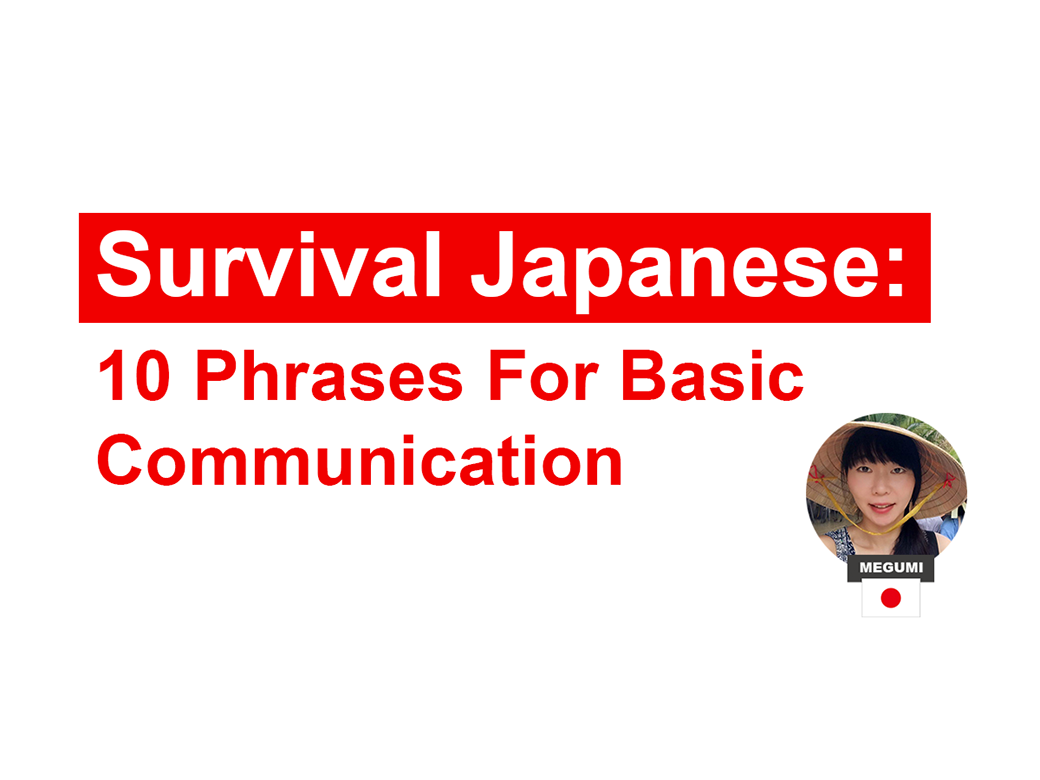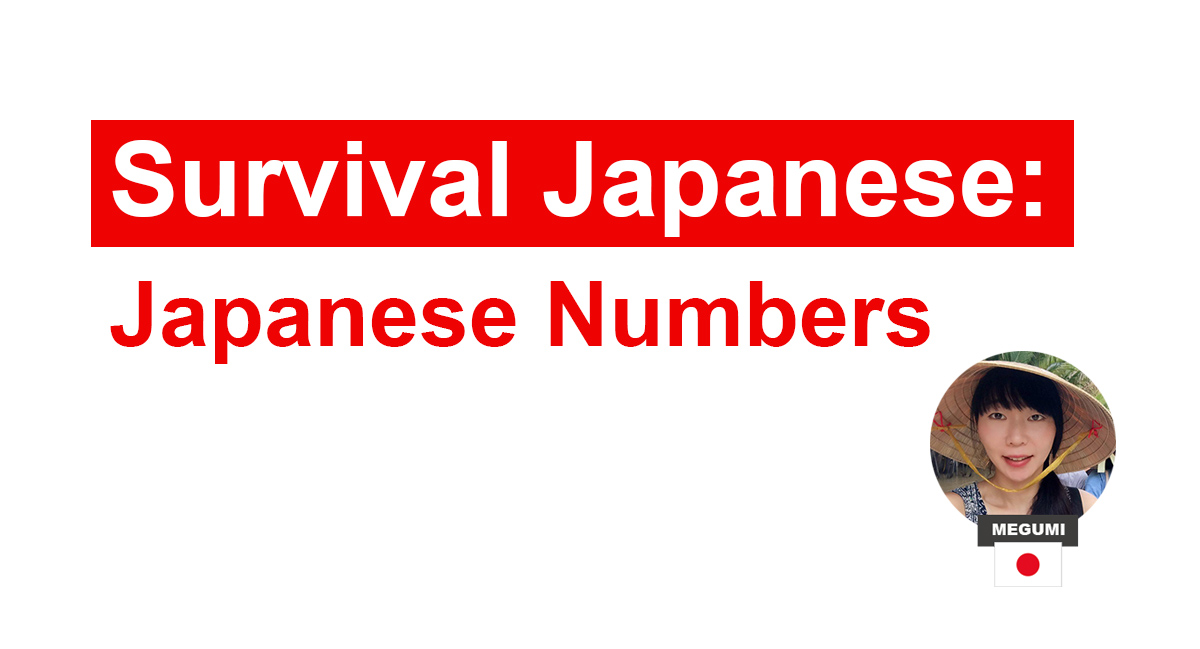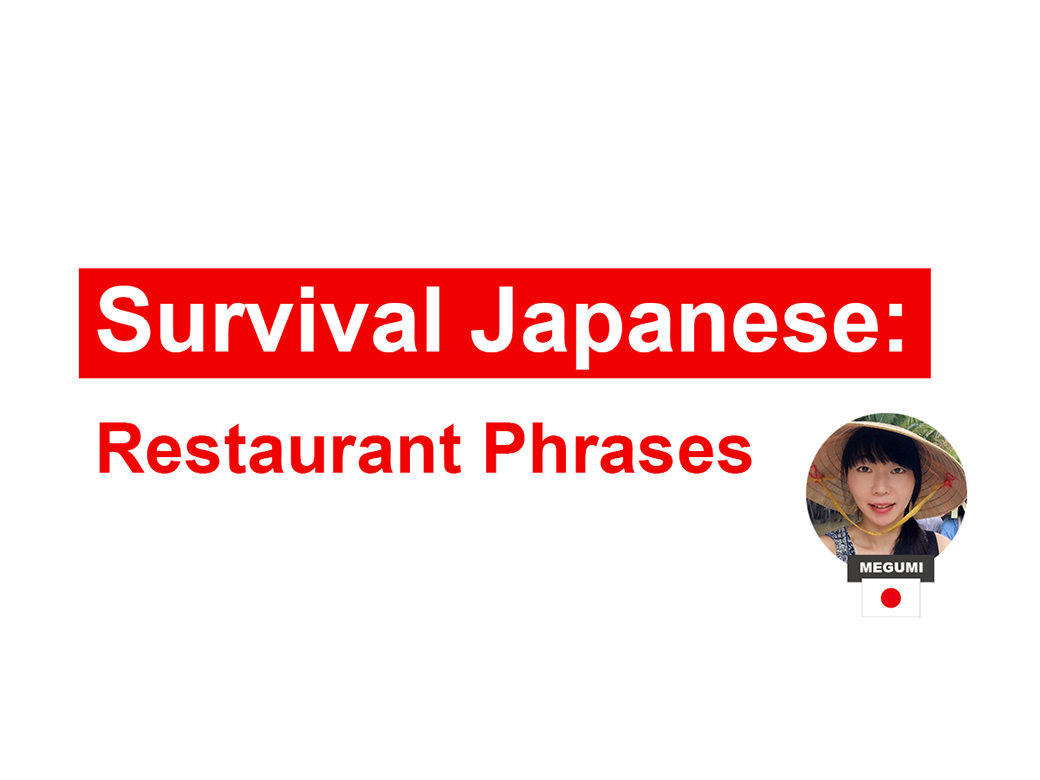Last Updated on October 2, 2020 by eattalktraveljapan
We don’t want to scare you, but you’ll need to learn some common Japanese phrases before you go to Japan.
Most Japanese people don’t need to use English unless they have foreign friends or work for/with foreign companies so they don’t speak it fluently. While there is a growing foreign population that’s slowly bringing more English speakers to Japan the numbers are still small and English use remains limited.
However, you don’t need to become fluent. These 10 very basic Japanese phrases will be enough to get you started. You may also want to check our guide to common Japanese phrases you’ll use at restaurants.
1. How do you say hi in Japanese?
The most basic (and probably most important) Japanese word is a simple hello:
Konnichiwa (こんにちは) It’s pronounced like cone, knee, chi (like in cheese), wa (like in water).
2. Good morning in Japanese
Now that you’ve learned to say hello, you can take your survival Japanese to the next level with a proper good morning:
Ohayou-gozaimasu (おはようございます). The first part is pronounced o-ha-yo, like the US state of Ohio. The next part is go, zai (rhymes with sigh), ma, suh.
Ohayo is fine with your friends, but it’s better to say Ohayou-Gozaimasu to strangers or older people.
3. Good evening in Japanese
Good evening is very similar to hello and there’s just one way to say it:
Konbanwa (こんばんは). The pronunciation is cone, ban (like bon bon), wa ( like in water).
4. Thank you in Japanese
Thank you is one of the most common Japanese phrases you will use. There are three main ways to say thank you in Japanese and the one you should use depends on how formal or polite you want to be.
Arigatou (ありがとう). Pronounced ah, ri, ga ( like the sound in got), toe. This is the most casual way to say thank you. It’s kind of like saying “thanks.”
Arigatou-gozaimasu (ありがとうございます). Adding gozaimasu makes it more polite. This is more like saying “thank you” and should be your default way of thanking people.
Doumo-arigatou-gozaimasu (どうもありがとうございます). Adding doumo, which is pronounced do ( like dough), mo (rhymes with dough), makes it even more formal. This basically means, “thank you very much.”
5. How to say please in Japanese
Please is kind of a big word in Japanese, but you’ll quickly get the hang of it.
Onegaishimasu (おねがいします). Pronounced oh, knee, guy, she, ma, suh.
6. Yes and no in Japanese
Don’t worry, these are both small words that are easy to pronounce.
To say yes:
Hai (はい). This is pronounced hi.
To say no:
Iie (いいえ). This is pronounced ee, a. The long e is important, because with a short e sound it means house.
7. Sorry and excuse me in Japanese
Both sorry and excuse me are very common Japanese phrases that will help you in a variety of situations. You’ll probably be asking directions a lot and apologizing for mistakes. Well, at least I do.
To say I’m sorry:
Gomennasai (ごめんなさい). This is pronounced go, men, na, sai (rhymes with pie).
To say excuse me:
Sumimasen (すみません). Pronounced sue (like a lawyer sues someone), me, ma, sen (rhymes with pen).
8. I’d like to go to Tokyo station in Japanese
We thought we would add some common Japanese phrases that are longer, but especially useful. You can substitute different city names as needed in this one.
Tokyo eki ni ikitai-desu ( 東京駅に行きたいです). The pronunciation is Tokyo eh, key, knee, e, key, tie, dess (rhymes with mess).
9. Where’s Tokyo station?
This is a slightly different variation of the last phrase and will give you a different way to ask directions. It will also show you how phrases are ordered differently.
The literal translation is Tokyo station is where?
Tokyo eki wa doko desu ka? (東京駅はどこですか?). This is pronounced Tokyo eh, key, wa, dough, ko (rhymes with mo), dess (rhymes with mess), kah.
10. Could you tell me how to get there?
This is likely to be a follow up question if you ask the other questions. It’s also of all our survival phrases, so we saved it for last.
Ikikata wo oshiete-itadakemasuka? (行き方を教えて頂けますか?). You pronounce this e, key, kah, tah, oh, oh, she, a, tay, e, tah, dah, key, ma, suh, kah.
You’ll be speaking basic Japanese in no time
Hopefully, this didn’t scare you off from visiting Japan. Many signs are written in English on the street and the train. There are also tourist booths and other sources of information to help you.
Although you may struggle to communicate, most Japanese people are very kind and will try to understand you as much as you try to understand them. They will try to help anyone even if there’s a language barrier. So don’t hesitate to ask for help. 🙂
And don’t worry. These common Japanese phrases are just a starting point. We will be offering more language advice soon.


